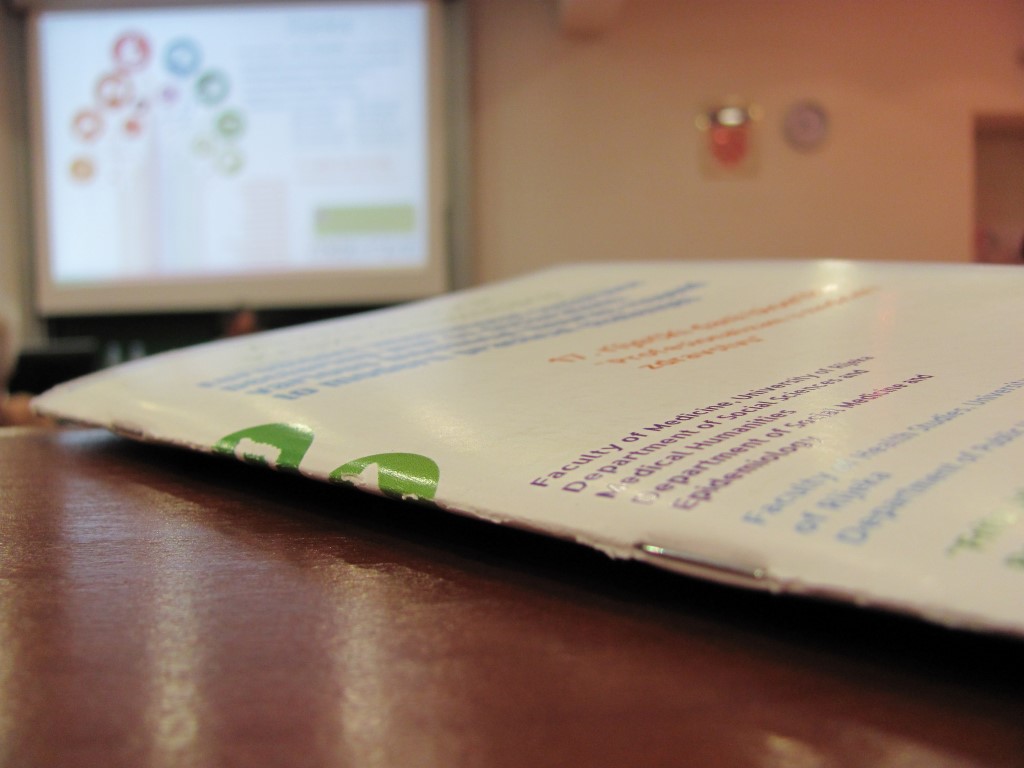By Sabina Paneva, 14F
In the summer of 2017, I was awarded a Summer Internship Grant from Ethics and the Common Good to develop my Division III research on holocaust education and present my work at the Mali Losinj Days of Bioethics Conference in Croatia. The annual international conference has become one of the most important bioethical conventions in Southeast Europe. Over five hundred scientists and two hundred students from more than thirty European, North American, and Asian countries have participated in it over the last fifteen years. The conference developed as an interdisciplinary dialogue space to establish a relationship between bioethics and the philosophy of history, hoping to open both subjects to new perspectives.
During the conference, I was able to work with peers my own age who frequently attended the conference to work on public speaking skills and to meet fellow youth from all over the world. Many students came from different parts of Europe, including Germany, Slovakia, and Hungary. However, a majority of the students hailed from Balkan countries. In fact, I was the only student to represent the United States. At the conference, I presented my work in a paper entitled, “Teaching and Learning About Genocide: Ethical Considerations,” in which I discussed the moral responsibilities of historians when teaching about genocide in educational settings. The conference provided an opportunity for us to work collaboratively and discuss topics concerning philosophy, ethics, bioethics, and politics.
After presenting at the conference, I stayed in Serbia for the summer, in my hometown of Novi Sad, and began initial research on my Division III. My research is particularly invested in Conflict, Peace, and Genocide studies because global conflict has impacted my own family. In the 1990s, my family had to leave our home country and immigrate to the United States as a result of the Serbian-Bosnian conflict. This experience inspired my interest in human rights and my research in conflict resolution as a means to foster global peace and peaceful relations between nations. Working in conjunction with a philosophy professor at the University of Novi Sad, I conducted independent research and began compiling a literature review on the subject of conflict studies. The work I did laid the groundwork for my Division III research and I left Serbia with a detailed concept and outline for my project.
In Serbia and the Balkans, discussing conflict is still considered a social taboo. Through presenting my research and engaging with participants at the conference, I was able to make an impact in this work by at least opening up room for discussion on genocide, planting seeds of reflection and ethical examination. In this regard, I am interested in exploring how education can be an effective tool in spreading awareness. I hope that my work continues to open up dialogue on the subject of conflict and genocide, and keeps this topic relevant within academic circles.
Sabina Paneva is a final semester Division III student at Hampshire College studying history, law, and education policy. Her senior thesis explores how Holocaust Education became formalized in American public schools from a historical perspective. She has been accepted to the Peace Corps and will be serving in Mongolia after graduation.


